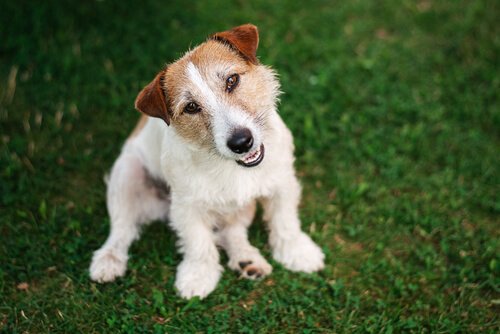Ten Tips For A Balanced Dog


Written and verified by the lawyer Francisco María García
A balanced dog is a happy dog. But for your dog to be happy and have a full life, there are a few factors that come into play. Find out how to keep your pet healthy in body and mind.
What a dog needs for health and happiness
A balanced family
To be happy, a dog must feel like part of a pack. In a pack, members respect and love each other. If the home environment is not ideal or if relationships are strained, pets feel it; they get stressed.
Set clear limits starting when he’s a puppy
A balanced dog needs discipline. Puppies should know their place in the herd—what is allowed and what is not. Discipline implies following orders. Dogs need clear, direct commands given in a firm tone of voice.

Yelling will accomplish nothing (a leader never loses control.) Each order should have just one word: “Sit” or “stay,” for example, but not both. Avoid giving commands that a dog cannot follow. He’ll just get confused.
Exercise
Physical activity is a determining factor in dog’s life. Taking them out for five minutes in the morning and five minutes in the evening isn’t enough. They need long walks — and sometimes good run. Ideally, it should be 45 minutes, two times per day. This will give them a chance to meet and interact with other dogs as well.
Love, affection, and socialization
Dogs demand affection and return it like few other animals do. In general, they like to be petted and cuddled. But they also love to play and burn off extra energy.
Rest and sleep well
After a long walk or a busy day of playing, pets need to recoup lost energy. Give them time to rest. It’s very important, so don’t interrupt their naps.
As for socialization, you should teach your dog to share with other dogs and interact with people outside of the family circle.
Nutritious food
A balanced dog needs nutrients and vitamins for his body to “run” optimally. A good immune system will help keep him from catching diseases like scabies. Also, don’t feed your dog too many carbohydrates, but fruit and vegetables can be good sometimes. Don’t forget that overweight dogs may have serious problems later in life.
Stay hydrated
Access to water is just as important as access to nutritious food. Keep your dog’s water bowl out of the sunlight. It should also be clean and relatively cool (no one likes to drink hot water).
Let your dog be a dog
Don’t humanize your pet. We know that dogs are intelligent enough to understand what we say, but always remember that they are dogs. This will help you accept their nature as canines. For example, many dogs do not like hugs, so don’t force it.

Dogs need to sniff, explore, and mark (via urination) their territory. It’s a way that they set boundaries with other dogs. Although you certainly don’t have to allow them to urinate in the house, it’s a natural canine behavior for outside and should not be suppressed.
Positive reinforcement
Studies show that the best way to train dogs is with positive reinforcement. Violence only results in fearful, distrustful dogs — and these dogs could end up being dangerous.
Relaxation activities
Just like small children, some dogs have more energy than they know what to do with. A good massage can relax them.
To sum up, a balanced dog usually comes from a balanced home. Ultimately, a pet’s personality is a good reflection of their owner’s personality.
This text is provided for informational purposes only and does not replace consultation with a professional. If in doubt, consult your specialist.